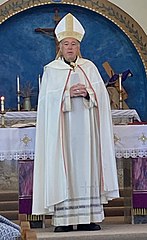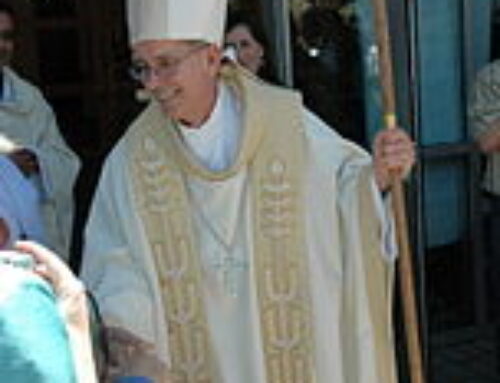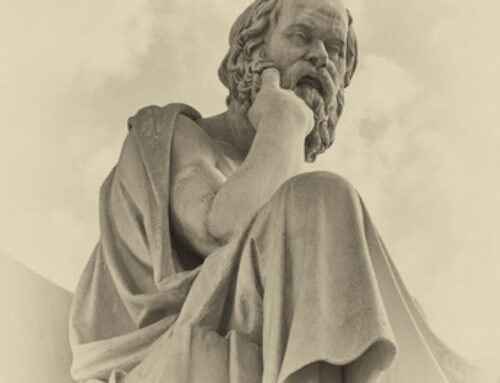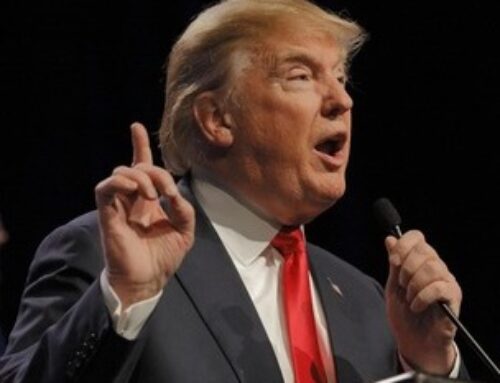
Let me begin with a brief summary of the Cardinal’s points to give the flavor of his 3000 word message:
“[The Catholic Church] contains structures and cultures of exclusion that alienate all too many from the church or make their journey in the Catholic faith tremendously burdensome.” What is desperately needed, he says, is “radical inclusion, shared belonging and deep hospitality according to the teachings of Jesus.” He goes on to specify those who need to be “invited” into the “fullness of church life and leadership.” The list includes “women as a whole, the poorest among us, the homeless, the undocumented, the incarcerated and refugees, the divorced and remarried without a declaration of nullity from the church, members of the L.G.B.T. community and those who are civilly married but have not been married in the church.” He goes on to deplore “excluding certain categories of people” from the “life of the church” and argues that because all of us are “equally in need of healing . . .” all baptized people should be welcomed to receive the Eucharist. [Emphasis added]
As even this brief summary makes clear, the Cardinal here proposes a breathtaking medley of changes in Catholic teaching. Because of his status in the Church, the sweep of his recommendations, and his forceful expression, many lay Catholics will understandably be inclined to accept his argument without weighing and considering it first, as Francis Bacon wisely recommended. But let us instead follow Bacon’s advice:
The first question to consider is, Does the Cardinal’s lumping together of so many problems weaken the quality of his argument? The answer is unfortunately yes, very much so. Poverty and homelessness are similar in some respects, but different in others. Illegal migration is different from both. Imprisonment for crime is vastly different from divorce and remarriage. Homosexuality involves unique philosophical and moral complexities. To imply that abolishing impediments to receiving the Eucharist will solve all these problems without addressing their complexities seems naive.
The second question is, Does the Cardinal address the matter of sin adequately? No, he does not. He mentions sin two times but only briefly. One refers to the sin of racism; the other, to sexual sins. He suggests the Church has given sexuality too much emphasis but does not explain how much or what kind of emphasis is appropriate. Oddly, though he uses the word “reconciliation,” his reference is not to the sacrament known by that name (or the name Confession). Similarly, he speaks of the need for “healing” but gives no clue as to what constitutes it. He also speaks of the primacy of conscience but does not mention the obligation to form a “right” conscience, thus implying falsely that conscience can never be badly formed or compromised. Odder still, he does not mention the Church’s teaching that absolution from sin requires confession, penance, and a firm purpose of amendment. That omission in effect endorses excusing rather than forgiving sin.
The third question is, Does the Cardinal’s essay meet the standards required for responsible analysis of a moral/theological issue? Among the major requirements of that standard are (a) demonstrating one’s knowledge of relevant historical facts concerning the issue, (b) clearly and and accurately defining conflicting viewpoints, and (c) objectively assessing their strengths and weaknesses. The essay does not meet those standards. It instead ignores relevant historical facts and neither identifies nor engages conflicting views and their rationales, as I will demonstrate:
In his essay, Cardinal McElroy says it is unfathomable why so many Catholics have a negative view of the L.G.B.T. community. Here is the full passage:
“It is a demonic mystery of the human soul why so many men and women have a profound and visceral animus toward members of the L.G.B.T. communities. The church’s primary witness in the face of this bigotry must be one of embrace rather than distance or condemnation. The distinction between orientation and activity cannot be the principal focus for such a pastoral embrace because it inevitably suggests dividing the L.G.B.T. community into those who refrain from sexual activity and those who do not. Rather, the dignity of every person as a child of God struggling in this world, and the loving outreach of God, must be the heart, soul, face and substance of the church’s stance and pastoral action.” [Emphasis added]
Keep in mind that Cardinal McElroy holds two Ph.D’s, which places him in extraordinarily rare company. It is estimated that only 2 percent of Americans hold a single Ph.D. and only 1 percent of that group hold two Ph.D’s. And he holds a Licentiate to boot! And yet he cannot fathom something that any junior high student with access to the Catechism of the Catholic Church could grasp with ease. If the student looked up “Homosexuality,” here is what he would find:
2357 Homosexuality refers to relations between men or between women who experience an exclusive or predominant sexual attraction toward persons of the same sex. It has taken a great variety of forms through the centuries and in different cultures. Its psychological genesis remains largely unexplained. Basing itself on Sacred Scripture, which presents homosexual acts as acts of grave depravity,140 tradition has always declared that “homosexual acts are intrinsically disordered.”141 They are contrary to the natural law. They close the sexual act to the gift of life. They do not proceed from a genuine affective and sexual complementarity. Under no circumstances can they be approved. [Emphasis added]
If someone then asked the junior high student if he could explain why many Catholics are hostile toward the homosexual community, he would surely say “That’s a no-brainer. It’s because their Church teaches them that what homosexuals do is ‘intrinsically disordered,’ ‘unnatural’ and ‘never acceptable.'” If he were then told that a man very high in the Catholic Church—in fact, just a bit lower than the Pope—was unable to answer the question the student just answered, he would no doubt say, “Has he never read the Catechism?”
We would chuckle at that question because, though it is reasonable for a young student to ask, we know that a Cardinal with two doctorates is without question familiar with the Catechism.
But wait a moment. If the Cardinal is well aware of the Church’s centuries-old teaching on homosexuality, why did he call society’s animus toward homosexuality a “demonic mystery” and blame it on “bigotry”? Furthermore, why did he present this absurd notion to a leading Catholic publication? And why did the editors publish it? Didn’t he and they fear that other members of the hierarchy in this country and around the world, including Rome, would publicly denounce its falsity? Apparently not, and probably because they believe more members of the hierarchy share their false view than oppose it.
Whatever the number of those who promote errors may be, many bishops and cardinals around the world are concerned that false and misguided teachings of this sort are undermining the Catholic faith. For example, a year ago Polish Archbishop Stanisław Gądecki, Australian Cardinal George Pell, and over 70 other prelates, including 48 Americans, signed a letter of concern about the problem. Their response is encouraging, yet Catholics should not rely on that alone, but carefully examine all proposals for change, even those from prelates, before embracing them.
Copyright © 2023 by Vincent Ryan Ruggiero. All rights reserved.


